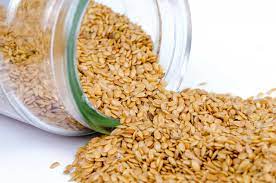Discovering sesame seed-like particles in your stool may raise enterprises and curiosity about your digestive health. While it might be intimidating, there are colorful reasons why undigested patches end up in feces. In this composition, we will explore the implicit causes of sesame seed-like appearances in stool, ranging from undigested food to underpinning medical conditions, and bandy possible treatments. Discovering sesame seeds in the poop can be a result of undigested food patches.
What Do Sesame Seed- Like Things in Stool Indicate?
Sesame seed-like particles in stool may indicate undigested food, dietary factors, or underpinning health issues. Causes range from rapid-fire digestion to malabsorption, specifics, fungal infections, or parasites. Treatment depends on the specific cause, emphasizing the significance of professional medical evaluation for accurate opinion and intervention.
Food That Has Not Been Digested
One of the most common reasons for sesame seed-like structures in stools is undigested food. Sesame seeds, being small and packed with nutrients, may pass through the digestive system without being completely broken down. This miracle can happen when the digestive process is too rapid-fire or deficient, leading to the appearance of complete seeds in the stool. Other Types of Food Intake piecemeal from sesame seeds, certain foods may also contribute to undigested particles in coprolite. Foods with high fiber content, similar to sludge, nuts, and vegetables, can occasionally pass through the digestive system fairly completely. Also, seeds with hard external coatings may repel the digestive process, leading to their presence in the stool.
Malabsorption
Malabsorption refers to the shy immersion of nutrients by the digestive system. Conditions like celiac complaint, Crohn’s complaint, or perverse bowel pattern( IBS) can disrupt the normal immersion process, performing in the appearance of undigested patches in the stool. In similar cases, the body may struggle to break down and assimilate certain factors of food, including sesame seeds.
Medications
Certain medications can affect the digestive process and contribute to the presence of undigested substances in stools. For illustration, some antibiotics and medications that alter bowel movements may impact the normal breakdown of food in the digestive tract. However, it’s essential to consult your healthcare provider, If you have recently started a new drug and notice sesame seed-like structures in your stool.
Fungal Infections
Infections caused by fungi in the gastrointestinal tract can also lead to undigested food particles in the stool. Fungal overgrowth, similar to Candida overgrowth, can affect the digestive process and affect the excretion of incompletely digested or undigested food. However, seeking medical attention is pivotal for proper opinion and treatment, If you suspect a fungal infection.
Parasites and Other Causes
Parasitic infections can significantly impact digestive health, leading to a range of symptoms, including the presence of undigested material in the stool. Parasites like Giardia or intestinal worms can intrude with the normal digestive process, causing malabsorption and other gastrointestinal issues. Also, conditions like pancreatic insufficiency, where the pancreas doesn’t produce enough digestive enzymes, can contribute to the deficient breakdown of food. Sesame seeds in the poop may indicate dietary factors impacting digestion.
Treatment
The treatment for sesame seed-like particles in stool depends on the underpinning cause. However, similar to the consumption of foods with hard external coatings, making adaptations to your diet may help, If the issue is related to salutary factors. Adding water input and incorporating further fiber-rich foods can promote better digestion and help the passage of undigested patches. For malabsorption issues, addressing the beginning condition is essential. Consult with a healthcare professional for proper opinion and operation of conditions like celiac complaint, Crohn’s complaint, or perverse bowel pattern. In some cases, salutary variations, enzyme supplements, or drugs may be recommended to ameliorate nutrient immersion and palliate symptoms. Still, agitating rather or conforming the lozenge with your healthcare provider may be necessary, If specifics are suspected as the cause.
No way to discontinue or modify your drug without consulting a healthcare professional. In the case of fungal infections or parasitic infestations, applicable antifungal or anti-parasitic specifics specified by a healthcare provider are essential. These treatments aim to exclude the underpinning infection and restore normal digestive function. Regular check- ups and open communication with your healthcare provider are pivotal for covering your digestive health and addressing any enterprises instantly. Also, maintaining a balanced and nutritional diet, staying doused and rehearsing good hygiene can contribute to overall gastrointestinal well- being.
When should I go to the doctor after noticing a change in the stool?
Feting changes in stool can be normal, but certain signs warrant a doctor’s visit. However, similar as blood, severe pain, If you observe patient differences. Unexplained weight loss, fatigue, or accompanying symptoms may also gesture a beginning concern. While occasional variations are typical, harmonious or intimidating changes demand professional evaluation to rule out implicit health issues. Trust your instincts and consult a healthcare provider if you have enterprises about your company. Beforehand discovery and intervention can address implicit health issues, icing your well- being. Prioritize your digestive health, and do not hesitate to seek medical advice for a thorough assessment if you notice a patient or concerning changes in your stool.
Conclusion
Understanding the reasons for sesame seeds in the poop involves considering colorful factors like diet and digestive health. In conclusion, visionary medical discussion for patient stool changes ensures the timely discovery and operation of implicit health issues.
Also Read: Why Does My Poop Smell Like Metal?



